
Avoid playing with fire while camping
21 August, 2018
The risk of fire on campsites is, sadly, always lurking, especially if it’s warm and dry at your holiday destination. And, of course, if you decide to have a barbecue, make a fire basket or have other open flames. Plus, if you use electricity or gas, there are added risks that you need to be aware of. So follow my tips for staying safe around fire, and you can avoid unnecessary misery.
Gas cylinders: proper ventilation is essential
If you’re using gas cylinders, you need to have them inspected, cleaned and adjusted every year. Changing them is something that is best done outside of your caravan, motorhome, tent or camper. What are other important things to consider?
- Never place gas cooking appliances close to tent canvas or other flammable materials like curtains, towels or clothing.
- Always use a splash guard when cooking.
- Never leave a gas cylinder loose in your caravan or motorhome, always place it in the designated location (usually in the front hatch). This must have plenty of ventilation openings.
- Always ensure good ventilation in areas where gas appliances are used.
- Gas cylinders must be as upright as possible during transport and storage.
Barbecue and fire baskets
What would a holiday be without a barbecue? And a fire basket or camp fire can help to create the perfect atmosphere as it starts to get dark. It is essential to exercise caution when dealing with fire. How can you minimise the risks?
- Always have a fire extinguisher, bucket of water or bucket of sand nearby.
- Place your barbecue or fire basket on a flat surface that is far enough away from flammable materials like your tent, washing line or bushes.
- Ensure that children and animals cannot accidentally bump into the barbecue or fire basket.
- Always use charcoal or briquettes on barbecues. Use firelighters or special fire lighting fluid to get the fire started. Petrol and spirits are not recommended as they can cause hazardous flare-ups.
- Never place the gas cylinder for your gas barbecue under the barbecue itself, always to the side.
- Finished with your barbecue? Cover a barbecue or fire basket that is still burning with sand when you’re done. Only when the barbecue is completely out can you move it. Carrying a burning barbecue or fire basket is highly discouraged!
Electricity: use suitable equipement
Hooking up the electricity is often the first thing that campers do when they get to their pitch and doing so safely needs little explanation. Using the right equipment is extremely important.
- The voltages in a caravan are 220-230 V and 12 V.
- There is a risk of fire, especially if the wiring is not intact. Connecting too many lights to your 12 V installation is also a risk.
- Ook een risico: te veel lampen aansluiten op je 12-voltinstallatie.
- The connection of a caravan to a 220 V installation is safest with a blue, splash water-protected CEE connector with a neoprene cable. It’s best to unwind the cable fully to prevent heat from developing.
- Caravans with a CEE connector are earthed. Caravans without a CEE connection must have a residual-current device.
- Special camping versions of household appliances are available, such as refrigerators and coffee makers. These have a lower power consumption. An inverter can also help you to keep your consumption at a safe level.
General safety instructions for fire
Ensure that you always have a fire extinguisher and/or fire blanket to hand. Installing a smoke alarm and CO detector in your caravan or motorhome is also a sensible idea. Even with the best precautions, accidents are just waiting to happen, so here are a few tips to bear in mind if a fire does break out.
- Move yourself and others to safety quickly.
- Remove any gas cylinders or other hazardous objects from the immediate vicinity of the fire. Only do this if it is safe to do so.
- Call the fire brigade and, while you’re waiting for them to arrive, attempt to extinguish the fire – provided that you can still leave your motorhome, caravan or tent safely.
- Inform adjacent campers and the campsite owner of the fire.
- Ensure that there is a clear route for the fire brigade by moving your car or other obstacles.
Any tips?
If you have any useful tips for campers, please get in touch. Share them below and who knows, they might come in handy!


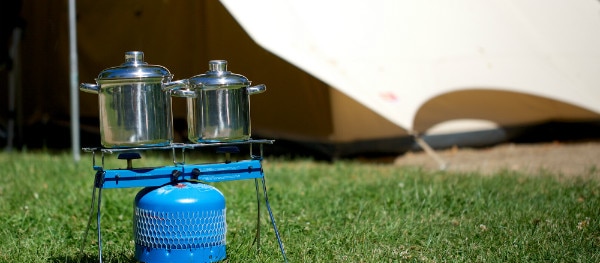
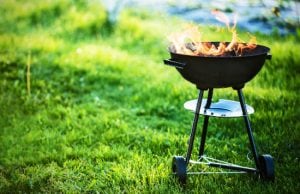
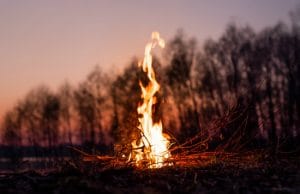
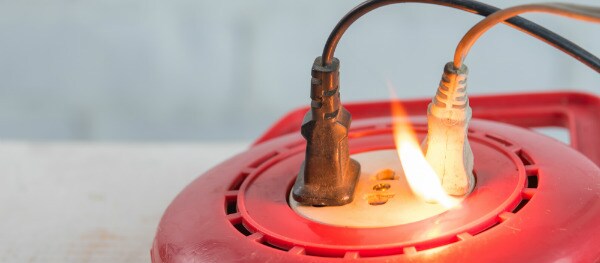
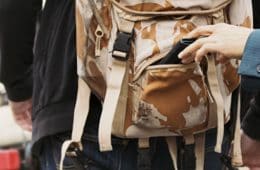
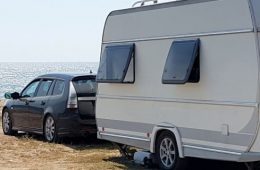
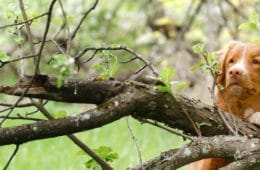
Latest comments